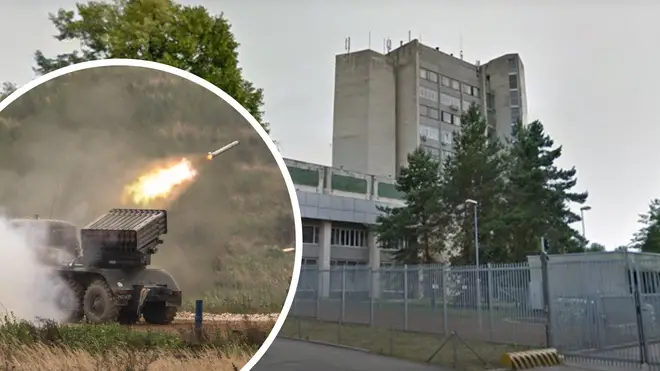
Nick Abbot 10pm - 1am
6 March 2022, 16:00 | Updated: 6 March 2022, 16:22

Russian forces are firing rockets at a physics institute in the city of Kharkiv that contains nuclear material and a reactor, Ukraine's national security service has said.
The security service said on Sunday a strike on the nuclear facility could lead to "large-scale ecological disaster".
Russians were accused of firing at the Institute of Physics and Technology from Grad launchers, which do not have precise targeting, raising concerns that one would go astray.
The institute is home to the Neutron Source nuclear research facility, which has 37 nuclear fuel cells in its core, Ukraine's deputy minister for foreign affairs Emine Dzheppar revealed.
Ms Dzheppar tweeted: "The Russian aggressor fired hail at the Institute's territory, where the Neutron Source nuclear facility is located, with 37 nuclear fuel cells loaded into its core.
"Destruction of a nuclear installation and storage facilities for nuclear materials can lead to a large-scale environmental catastrophe."
Read more: Ceasefire ends: Mariupol evacuation halted for second time as Russia 'shells civilians'
Read more: More than 1.5m people flee Ukraine in fastest-growing refugee crisis in Europe since WWII

Raab: UN monitors could be on ground to avoid 'Chernobyl-style' crisis
It comes after Russia attacked the Zaporizhzhia nuclear plant earlier in the week, which is the biggest atomic power plant in Europe.
Forces seized control of the plant in Energodar, which accounts for about a quarter of Ukraine's power generation, causing concerns over another nuclear disaster like Chernobyl in 1986.
Following the incident, the US said the world "narrowly averted a nuclear catastrophe" while Britain's representative said it was the first time a state's military attacked a functioning nuclear plant.
Despite the institute's reactors not being as big as those used in nuclear power plants, the facility could still cause a lot of damage if the Russians succeed in hitting it.
Deputy Prime Minister Dominic Raab told LBC on Sunday that UN monitors could be used on the ground to avoid a future "Chernobyl-style" incident in Ukraine.
Speaking on LBC's Swarbrick on Sunday, Mr Raab said he was "very confident" the move was being discussed due to the gravity of another Chernobyl-style incident taking place.
He explained: "I think it's the specific technical issues plus the reassurance that not just Ukraine needs, but Europe and the rest of the world, given the potential global reach of a disaster like that."